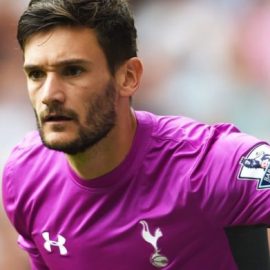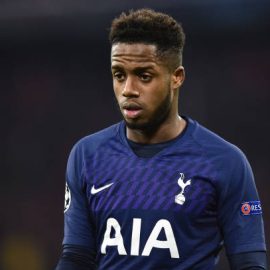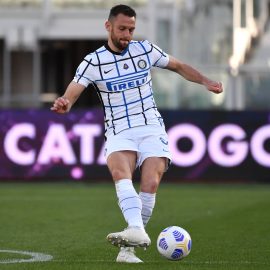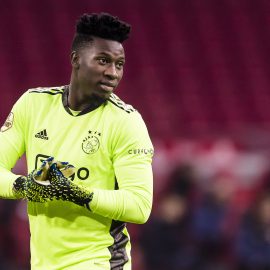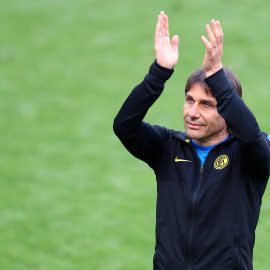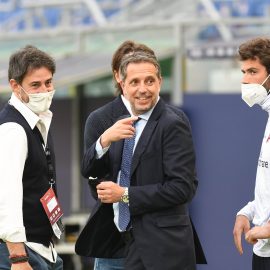It’s another step in the forward moving efforts to increase the profile of Major League Soccer (MLS), and one that carries with it more weight than the recent World Football Challenge (WFC), which saw the likes of Manchester United, Real Madrid, Barcelona and Juventus make fleeting pre-season visits to US shores. Certainly the signing of Republic of Ireland international Robbie Keane is one that should bring flair, quality, excitement, and audiences to the Home Depot Centre in California, Los Angeles.
It was with that in mind that Glenn Hoddle made Keane his big early season signing for Tottenham Hotspur in 2002, after a World Cup in the Far East that saw the Irishman score three times. On the day Hoddle revealed his new £7million purchase, Teddy Sheringham caressed home a stoppage time penalty against Southampton to propel Tottenham Hotspur to the summit of the Premier League after four games of the 2002-2003 campaign. At that instant, watching from the stands Keane may have viewed it as an opportunity to play in a team with grand ambition and momentum, who would target a place amongst the established group, frequently challenging for the Champions League places.
It is with a sad quirk of fate that the chance of top European football should fail to materialise in a Spurs shirt until eight durable years after his debut, by which time he was no longer a fixture in the first team. It should have said something to Keane that in the very next match after signing, his new team surrendered a two goal lead against Fulham and with it a place at the top of the table. It was that kind of infuriating moment that has encapsulated Tottenham Hotspur’s progress over the past nine years during which their mercurial and enigmatic Irish star has given pride, beauty and pleasure to his admiring and appreciative supporters.
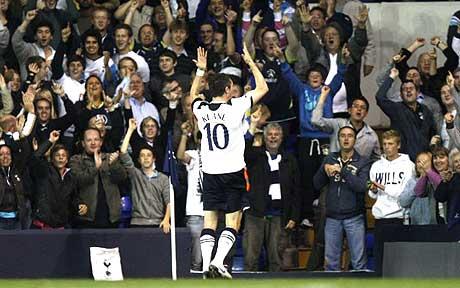
Finishing; tenth, fourteenth, ninth, fifth, fifth, eleventh, and eighth, from 2003 to 2009 respectively, demonstrates how the team from North London never got close to challenging for the title and on many occasions illustrated little more than mid-table mediocrity. However, throughout Keane was a beacon of light searing rays to all four corners of White Hart Lane. His skill and intelligence delivered some wonderful moments for a self proclaimed underachieving club, which so often refers to a history of glory and grandeur.
The standard of his goals were breathtaking, and his appreciation for teammates irrespective of their ability was a standout feature of his game. Keane looked as wonderful in a Spurs team that only secured Premier League survival with two games to spare in 2004, as he did when they were one game away from the Champions League in 2006. His partnership over the following two seasons with Dimitar Berbatov was one of the most devastating in the clubs history, not just because of the quantity of goals it brought, but because of the excellence it came with.
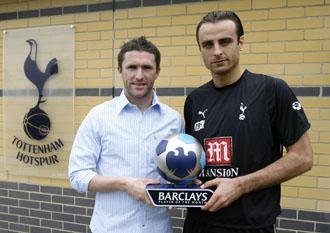
You could suggest, that for the first few years of Keane’s time in blue and white he carried the team, if not in the literal sense then certainly in the hearts of Spurs supporters. He gave them hope throughout that irrespective of success the club’s philosophy would not be lost. His crowning moment was of course in the 2008 League Cup Final, which to this day remains Keane’s only major honour. Nevertheless, it could be argued that his biggest responsibility was on returning to the club in January 2009, after what can now only be looked on as a sabbatical at Liverpool, having initially departed for £20million six months earlier. At a period when Tottenham Hotspur was still bottom of the table he dependably accepted the team captaincy, and instantly raised the standards of those around him steering Tottenham to a secure ninth place finish.
Of course it would be easy to diminish the Irishman’s achievements on the basis that Spurs have experienced their most successful run in the league and in Europe for many a year without a significant contribution from the former Leeds United forward; Keane has taken loan spells at Glasgow Celtic and West Ham United in that time. But it should never be forgotten that the man from Dublin preserved the spirit and wonder on which the club was founded at a time when it couldn’t muster fourth place finishes and “glory glory nights” in the Champions League.
Departing now for pastures new it is incredible to think that the more mature Keane is still only 31. But for those that he leaves behind it is important to recognise the gift he brought, and to appreciate how lucky they were to have him.
Add Sportslens to your Google News Feed!

